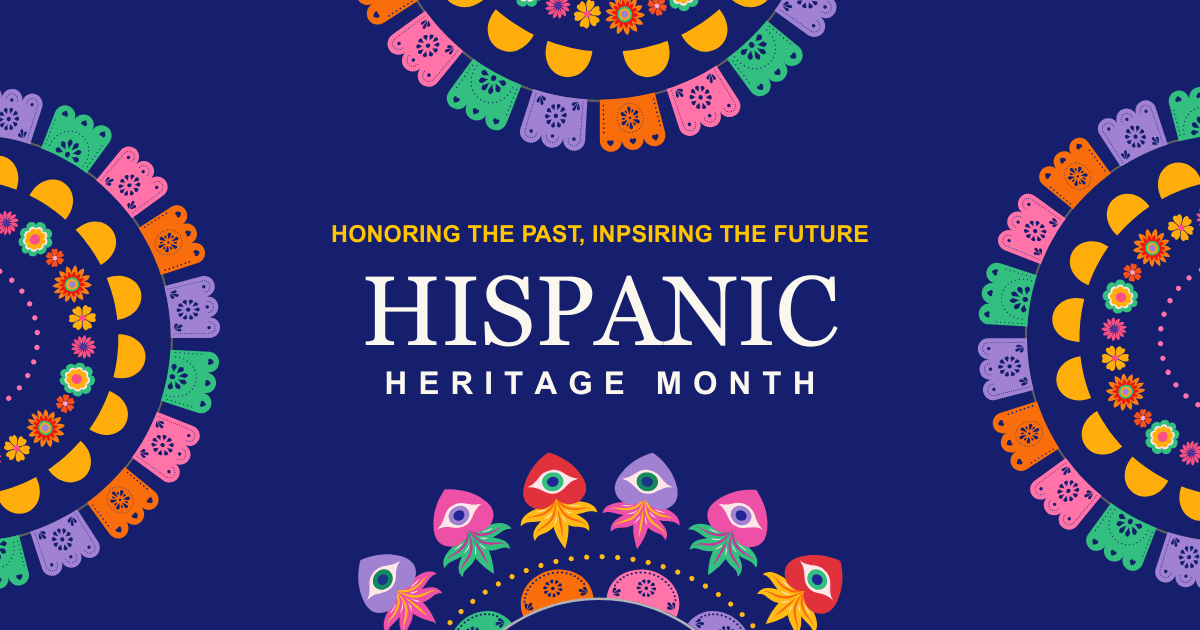Honoring Hispanic Heritage Month: Understanding Latino Perspectives on Organ Donation
Hispanic Heritage Month (September 15 – October 15) is a time to celebrate the history, culture and contributions of Hispanic and Latino communities across the United States. The month begins on the anniversary of independence for several Latin American countries, including Costa Rica, El Salvador, Guatemala, Honduras, and Nicaragua, with Mexico and Chile celebrating shortly after.

For those of us in the organ and tissue donation community, it is also a time to (1) honor their lasting impact on the fields of donation and transplantation, and (2) reflect on the disparities Latino patients face when it comes to transplants — and the role we must play in building trust and improving outcomes.
Latino communities often express strong cultural values of family, generosity and community, all of which align with the life-saving mission of organ donation. Many Latino families support donation in principle and want their decision to help others to be honored.
Fast facts
- In 2025, Hispanic/Latino individuals represent 14.6% of all deceased organ donors in the U.S.
- So far in 2025, 1,463 Hispanic/Latino deceased donors have given the ultimate gift of saving and healing lives through organ donation.
- More than 25,000 Hispanic/Latino individuals are currently waiting for a life-saving organ transplant in the U.S. That’s nearly 1 in 4 candidates of color.
Barriers to organ donation and transplant access
Despite this support, there are barriers that can make organ donation a difficult or uncertain decision for some Latino families. Common challenges include:
- Cultural and religious context – Some cultural traditions or religious teachings emphasize the sanctity of the body or prioritize family-centered decision-making, which can influence perspectives on donation.
- Misinformation and rumors – Myths sometimes spread through social media or community conversations, such as the fear that being an organ donor could impact immigration status or access to healthcare or insurance.
- Distrust in institutions – Past experiences of discrimination in healthcare contribute to skepticism about fair treatment for Latino patients.
- Fear of exploitation – Concerns exist about whether Latino donors will be treated with dignity and respect.
- Immigration status concerns – For undocumented immigrants or mixed-status families, there is fear that registering as a donor could expose individuals to government systems and increase the risk of deportation or legal consequences.
By acknowledging and addressing these barriers, OPOs and healthcare professionals can help build trust, provide accurate information and support families in making informed decisions.
Why this awareness matters
Hispanic Heritage Month began in 1968 as a weeklong observance and was expanded in 1988 to a 30-day celebration. Beyond honoring history and achievements, the observance offers an opportunity for healthcare providers to:
- Strengthen cultural competency.
- Listen to and learn from Latino patients and families.
- Tailor outreach and education efforts to address specific concerns and questions.
This awareness is essential for advancing equity in healthcare and ensuring that all communities feel supported when making decisions about organ and tissue donation.
Our role: Building trust through transparency and action
As an OPO, we believe advancing equity requires more than awareness — it requires leadership, transparency and accountability. That means:
- Providing clear, bilingual education that addresses myths and fears directly.
- Partnering with community leaders, faith groups and families to foster authentic dialogue.
- Training healthcare teams to approach conversations with cultural competence and compassion.
- Sharing data openly to highlight both successes and ongoing disparities.
By embracing these actions, we show Latino communities that their concerns are heard, their voices matter, and their loved ones will always be treated with dignity.
As the need for transplants among Latino patients continues to grow, the healthcare community must rise to the challenge with expertise, honesty and compassion.
Every decision to register as an organ donor is an act of generosity. Every transparent conversation builds trust. And every life saved moves us closer to a more just and equitable healthcare system.
Our team would be honored to share more about organ and tissue donation at your next community event. Whether through a presentation or an information table, we’re here to answer questions, provide bilingual resources, and support meaningful conversations.
About the Contributors
This blog post was developed with contributions from our Community Engagement Liaisons, Beatriz Martinez and Paula St. John, who lead efforts to connect diverse communities with reliable, culturally relevant information about organ, eye and tissue donation.
Beatriz brings more than 18 years of healthcare outreach experience and, as a member of Minnesota’s Latine community, is dedicated to ensuring all individuals have access to the information they need to make informed decisions.
Paula draws on nearly two decades of nonprofit community outreach experience, with a focus on historically underrepresented communities including BIPOC and LGBTQIA+. As a bilingual and bicultural professional, she is passionate about dismantling myths, building trust, and advancing equity in donation education.
Sources:
Association for Multicultural Affairs in Transplantation (AMAT)
Organ Procurement and Transplantation Network (OPTN), 2025 data
 Skip to main content
Skip to main content
